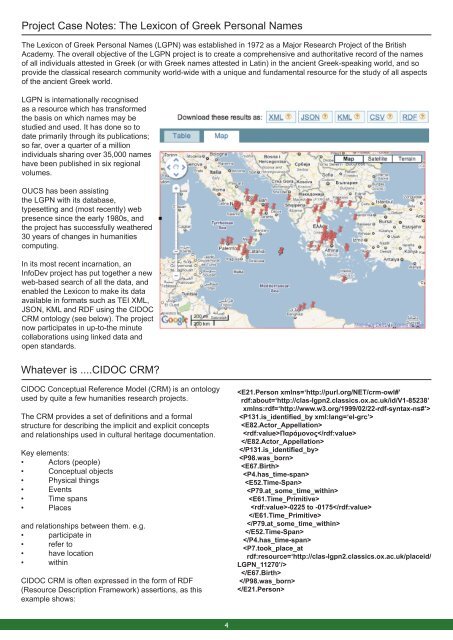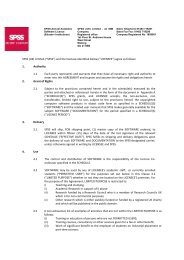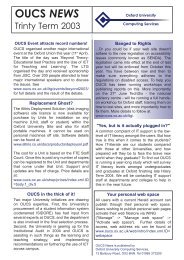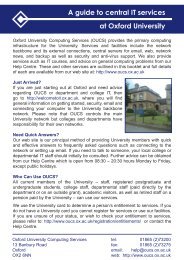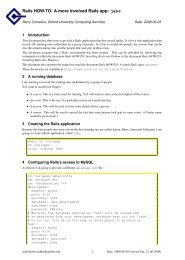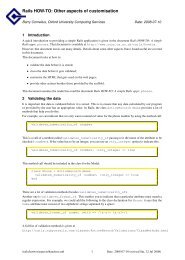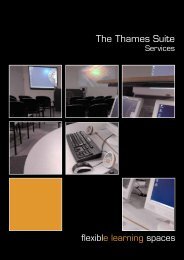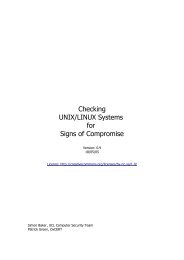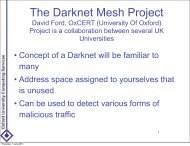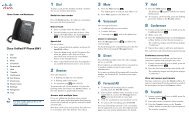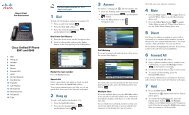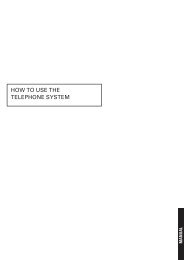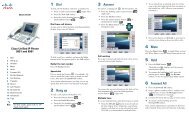Hilary 2011 - IT Services - University of Oxford
Hilary 2011 - IT Services - University of Oxford
Hilary 2011 - IT Services - University of Oxford
Create successful ePaper yourself
Turn your PDF publications into a flip-book with our unique Google optimized e-Paper software.
Project Case Notes: The Lexicon <strong>of</strong> Greek Personal Names<br />
The Lexicon <strong>of</strong> Greek Personal Names (LGPN) was established in 1972 as a Major Research Project <strong>of</strong> the British<br />
Academy. The overall objective <strong>of</strong> the LGPN project is to create a comprehensive and authoritative record <strong>of</strong> the names<br />
<strong>of</strong> all individuals attested in Greek (or with Greek names attested in Latin) in the ancient Greek-speaking world, and so<br />
provide the classical research community world-wide with a unique and fundamental resource for the study <strong>of</strong> all aspects<br />
<strong>of</strong> the ancient Greek world.<br />
LGPN is internationally recognised<br />
as a resource which has transformed<br />
the basis on which names may be<br />
studied and used. It has done so to<br />
date primarily through its publications;<br />
so far, over a quarter <strong>of</strong> a million<br />
individuals sharing over 35,000 names<br />
have been published in six regional<br />
volumes.<br />
OUCS has been assisting<br />
the LGPN with its database,<br />
typesetting and (most recently) web<br />
presence since the early 1980s, and<br />
the project has successfully weathered<br />
30 years <strong>of</strong> changes in humanities<br />
computing.<br />
In its most recent incarnation, an<br />
InfoDev project has put together a new<br />
web-based search <strong>of</strong> all the data, and<br />
enabled the Lexicon to make its data<br />
available in formats such as TEI XML,<br />
JSON, KML and RDF using the CIDOC<br />
CRM ontology (see below). The project<br />
now participates in up-to-the minute<br />
collaborations using linked data and<br />
open standards.<br />
Whatever is ....CIDOC CRM?<br />
CIDOC Conceptual Reference Model (CRM) is an ontology<br />
used by quite a few humanities research projects.<br />
The CRM provides a set <strong>of</strong> definitions and a formal<br />
structure for describing the implicit and explicit concepts<br />
and relationships used in cultural heritage documentation.<br />
Key elements:<br />
• Actors (people)<br />
• Conceptual objects<br />
• Physical things<br />
• Events<br />
• Time spans<br />
• Places<br />
and relationships between them. e.g.<br />
• participate in<br />
• refer to<br />
• have location<br />
• within<br />
CIDOC CRM is <strong>of</strong>ten expressed in the form <strong>of</strong> RDF<br />
(Resource Description Framework) assertions, as this<br />
example shows:<br />
<br />
<br />
<br />
Παράμονος<br />
<br />
<br />
<br />
<br />
<br />
<br />
<br />
<br />
-0225 to -0175<br />
<br />
<br />
<br />
<br />
<br />
<br />
<br />
<br />
4


